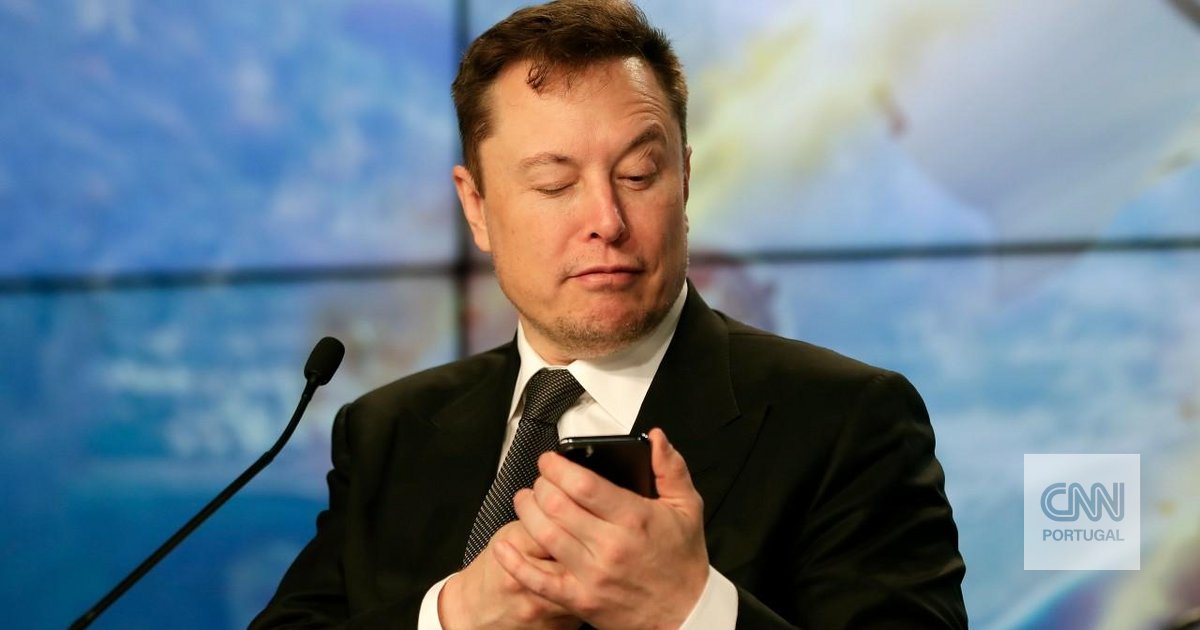First, he made Starlink available, then threatened to withdraw the free service, and soon backed down: multimillionaire Elon Musk knows how much influence he has in Ukraine, and “made a brilliant move.” It’s a very sensitive move when it comes to war – especially this war where the Starlink Mask really (but really) makes a difference on the battlefield.
The European Union is considering whether to contribute funds to ensure Ukrainians retain access to the vital Starlink service currently provided by Elon Musk. While the proposal is still in its early stages, the discussion comes at a time when the tech mogul has warned that his space agency SpaceX can’t endlessly pay Ukrainians for access to Starlink’s internet service. Politico website, Elon Musk even suggested that the US government pay the bills.
Who is also the richest man in the world, eventually changed his mind and ensured that he would continue to fund the service. But the panic has raised concerns about the security of Ukraine’s continued access to a critical telecommunications system that has played a vital role in its counteroffensives. After all, it is this free Internet network that Ukraine has spread throughout the territory that has allowed the population to continue to report and show images to the world and the army about what is happening on the ground. And so, by the way, the Ukrainians managed to “fight with most of the Russian armored columns” in first six months of the war.
At Politico, Lithuanian Minister of Foreign Affairs Gabrielius Landsbergis, proposed that Internet access in Ukraine should not remain in the hands of one “superpowered” person who can “wake up one day and say, ‘This is not what I want to do anymore, that’s all’, and the next day Ukrainians can be without the Internet “.
No Starlink, surrender
But what if Elon Musk changes his mind? However, in essence, “taking the Internet away from Ukraine will move it to the level of Russia and automatically cancel it,” says a cybersecurity and telecommunications expert. Nuno Matheus Coelho. This is because, according to him, Ukraine is highly dependent on this resource and has no alternatives. “Right now, the big advantage the Ukrainians have over the Russians is that they are a cyber army,” emphasizes Nuno Mateus-Coelho, who is also shared by Major General Agostinho Costa, who adds that “Starlink has an operational application that allows Ukraine to digitize war.”
Let’s imagine a war scenario in which Ukrainian troops are in the middle of a field and want to activate a drone to attack an armed vehicle and be able to communicate using computers, namely to transmit images in real time. “Without Starlink, this is impossible,” explains Nuno Matheus-Coelho, explaining that most of the territory of Ukraine has lost its 4G network infrastructure. “When Ukrainian forces are sent to Donbass without a mobile network, they cannot operate this equipment. At the same time, they cannot make phone calls or maintain secrecy in communications.”

Starlink receiver installed in Odessa (Getty Images)
Starlink provides a secure network throughout the territory. And the entire Ukrainian military structure is based on this resource – “even the way the Ukrainian government communicates,” explains Nuno-Matheus Coelho, leaving a reflection: “How does a simple antenna manage to control light, water? , and armies… Taking Starlink from Ukraine is a capitulation. There is no alternative.”
And this is where the West comes in. Should the EU bear the cost of Starlink? It is essentially a US company owned by a US citizen. “The Starlink communication system provides, first of all, information superiority over Ukraine, which is a tipping point that it cannot do without – and the West will not allow it to stop access,” says Maj. Gen. Agostinho Costa.
The major general recalls that the United States supports Ukraine not only with the Starlink satellite network, but also with the JSTARS system, which allows you to monitor the battlefield and correctly perceive the theater of operations. “It ranges from operational to tactical command. They know how, when and where to attack.” So much so that during the counter-offensive in Kharkov, a series of laser beams was seen aimed at the sky.
“When Liman was conquered, there were signs of some unease in the Ukrainian army, which reported failures in the Starlink system,” the major general says, pointing out that “in the midst of this, Elon Musk acts as a kind of Prince of Peace and proposed holding elections in the Donbass “.
First, he made Starlink available, then threatened to withdraw the free service, and then immediately refused. “Elon Musk is doing a brilliant Twitter-style move,” says Nuno Matheus-Coelho, “but what he really wants is to be paid.” And we are talking about multimillion dollars.
Major General Agostinho Costa stresses that “we need to understand what goes beyond the message”: SpaceX has invested about $80 million to provide broadband for the Ukrainian military — a cost that, according to Elon Musk, could reach $400 million by the end . next year. “This is pressure on the US government. Elon Musk’s problem is that when the system is attacked by Russia, who pays for the damage?

















